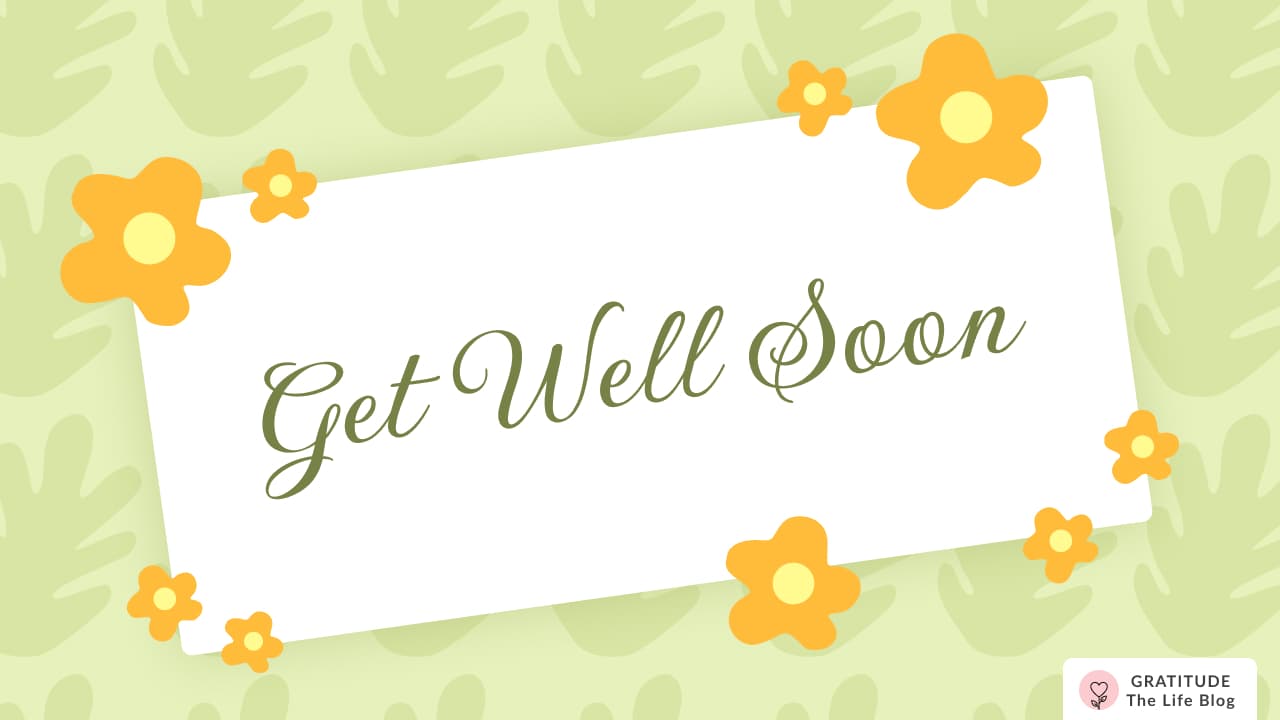130+ Journal Prompts for Adults
Explore these fun and creative prompts!

Do you remember keeping a journal as a child? Maybe you had a little beautiful notebook with a lock where you wrote down your secrets and dreams, hiding it under your bed so no one could find it.
Or perhaps you just enjoyed writing down your thoughts and feelings from time to time. As children, we are often encouraged to express ourselves through writing, drawing, or other creative outlets. It’s given a lot of importance and time.
But as we grow older, a lot of us lose track of this wonderful practice, either because we become too busy or don’t see its importance anymore.
Fret not! Today I bring journal prompts for adults that will help you start this practice once again, or begin brand new!
The truth is, no matter how much we grow, journaling can be incredibly beneficial for our mental health and well-being. It gives us a way to process our thoughts, reflect on our experiences, and understand ourselves.
As we read back what we’ve written, we get a new perspective on our own feelings and opinions. Journaling is also recommended in therapy and I have experienced its impact.
Why should you start journaling?
In my mind, it’s not really why you should journal, but why shouldn’t you? Journaling brings all sorts of benefits to our lives.
Here is a list of all of them:
- It can help you manage anxiety, reduce stress and cope with depression^
- It provides you with the opportunity for positive self-talk and to identify negative thoughts and behaviors^
- It improves our awareness and perception related to life events
- Expressive journaling helps in lowering blood pressure and improving mood^
- Journaling also helps us think clearly and be more creative with our ideas.
- Journaling helps us understand ourselves and therefore become capable of helping ourselves
But journaling is not just a tool for coping with difficult emotions. It can also be a way to celebrate our achievements, express gratitude, and cultivate a positive mindset.
By focusing on the good things in our lives, we can develop a sense of perspective and appreciation, even in the midst of challenging times.
So, whether you used to journal and want to get back into it, or you're starting from scratch, this post is for you! I'll be sharing journal prompts for adults that will help you get into the joy of journaling with ease.
So grab a cup of tea, find a comfortable spot to sit, and let's dive into the world of journaling!
Are there any rules for journaling?
The only rule for journaling is that you write how you are feeling.
Don’t worry about grammar, sounding poetic or cohesive, or punctuation and spelling. Your journal is the place where you let go of expectations and only express yourself.
Journaling is a form of therapy where you can just be yourself with no other requirements. So the rule is not about structure but about honesty, vulnerability, and action.
Tip for building a journaling habit
One way that you can become consistent with journaling is to use a technique called habit-stacking. Here you identify a current habit you already do each day and then stack your new desired behavior on top.
For example, you can choose that after you brush your teeth, you will do your journaling, or before you turn the bedroom light off at night. Identify the habits you have and add journaling to them.
Journal Prompts for Adults
Now, I’ll list down 9 ways of journaling that you can try out with prompts for each. Be sure to have a journal ready. My recommendation is to use the one I do which is the Gratitude app. It’s private, digital, has a lot of great prompts, reminds me to write, and I can also add photos to it. Have fun!
1. Gratitude Journaling
Gratitude journaling is a powerful activity. It helps you pick up and carry your focus to things that indeed are good in your life. We tend to focus a lot on what’s wrong or what we don’t have. But there’s a lot that we’re not looking at. With gratitude, our eyes become bigger.
Here are gratitude journal prompts for adults:
- List five things you are grateful for today.
- Write about a person in your life for whom you are grateful and why.
- Reflect on a difficult experience you have had and identify one thing you learned from it that you are grateful for.
- Write about a challenge you are currently facing and identify one thing you are grateful for that has helped you cope.
- Make a list of ten things you are grateful for in your home.
- Write about a place you are grateful to have visited or experienced.
- List three things that brought a smile to your face today and write about why they made you happy.
- Write a letter of gratitude to someone who has had a positive impact on your life.
- Make a list of five things you are grateful for about your body.
- Write about a time in your life when you received unexpected kindness and how it made you feel.
- List three things you are grateful for about your job or career.
- Write about a friend or family member who has supported you through a difficult time and why you are grateful for them.
- Make a list of five things you are grateful for in nature.
- Write about a skill or talent you possess that you are grateful for.
- List three things you are grateful for about your physical health.
- Write about a book, movie, or piece of art that you are grateful to have experienced.
- Reflect on a time when you felt lost or uncertain and write about how you found your way back to gratitude.
- Make a list of five things you are grateful for in your community.
- Write about a pet or animal that you are grateful to have in your life.
- List three things you are grateful for about your mental health.
2. Reflection Journaling
This type of journaling focuses on your thoughts, feelings, ideas, and experiences. Here, you can reflect on the day you had, a difficult situation, or your choices even. Why do you do what you do? What makes you feel energized?
Here are journal prompts for self-reflection:
- Reflect on a mistake you made and what you learned from the experience.
- Write about a time when you faced a difficult decision and how you ultimately made your choice.
- Write about a moment in your life when you felt truly alive and engaged.
- Think about a relationship that has changed over time and reflect on how it has evolved.
- Write about a challenge you faced and how you overcame it.
- Reflect on a time when you felt proud of yourself and what you accomplished.
- Write about a fear you have and explore where it comes from and how it affects you.
- Reflect on a time when you felt truly heard and seen by someone else.
- Write about a moment when you felt completely at peace and content.
- Reflect on a time when you were able to forgive someone who hurt you.
- Write about a difficult conversation you had and how it made you feel.
- Reflect on a time when you were challenged to step out of your comfort zone and try something new.
- Write about a relationship you have had that has ended and what you learned from the experience.
- Reflect on a time when you had to say goodbye to someone or something you loved.
- Write about a moment when you felt like you were truly connecting with someone else.
- Reflect on a time when you felt like you were living out of alignment with your values.
- Reflect on a moment when you felt like you failed at something and how you bounced back from it.
- Write about a time when you felt like you were able to make a positive difference in someone else's life.
- What was the highlight of your day and why?
- Did you encounter any challenges or setbacks today? How did you handle them?
- What is something you learned today about yourself or the world around you?
- What is something you wish you had done differently today, and why?
- Did you connect with anyone today in a meaningful way? If so, who and how?
- What were your biggest successes this week, and what did you learn from them?
- Were there any obstacles or challenges you faced this week? How did you handle them?
- Write about a new experience or activity you tried this week. How did it make you feel?
- Think about a conversation you had this week that stood out to you. Why was it memorable?
- What are some things you accomplished this week that you are proud of?
- What were your goals for this month, and how did you progress toward them?
- What did you learn about yourself this month that you didn't know before?
- How was your health, both mental and physical, this month?
- Were there any significant events or changes in your life this month that impacted you?
- Write about a challenge you faced this month and how you overcame it.
- What were some things that made you feel happy or fulfilled this month, and why?
3. Affirmation Journaling
This type of journaling is helpful when you want to improve your self-talk or are trying to manifest/achieve a goal in your life.
The basis of the affirmation practice is that it works against the negative statements in our minds. Affirmations can be both positive and negative. A very simple example is:
- “I can do it!” is a positive affirmation
- “I can’t do it.” is a negative affirmation
Here are journal prompts for writing affirmations:
- Write three affirmations that reinforce your self-worth and value.
- Write three affirmations that encourage you to embrace change and trust in the journey, while welcoming new opportunities.
- Write four affirmations that boost your self-belief and remind you of your potential to learn, grow, and evolve.
- Write three affirmations that remind you to prioritize your self-care and well-being in all areas of your life.
- Write two affirmations that reinforce your sense of purpose and your vision for making a positive impact in the world.
- Write four affirmations that remind you of your strength, resilience, and ability to overcome challenges.
- Write three affirmations that help you stay present and focused, while trusting the journey.
You can refer to this post with affirmations to pick affirmations for yourself. Every morning, you can write a few affirmations 3 times to practice them.
4. Journaling for Fun
Journaling can also be solely for fun. In adult life, it’s easy to get too serious about things These prompts will help you revive your imagination and write with sparkle in your eye.
- If you could be any character from a book or movie, who would you choose and why?
- What is your all-time favorite joke or funny story? Write it down and explain why it makes you laugh.
- If you could live in any city or country in the world for a year, where would you go and what would you do?
- Make a list of all the things that make you feel happy and joyful. Choose one and write about why it brings you joy.
- If you could switch lives with someone for a day, who would it be and why? Describe what you would do and how you would feel.
- Write a short story that includes a talking animal, an alien, and a magical object of your choice.
- If you could have any superpower, what would it be and how would you use it?
- Make a list of your favorite childhood memories. Choose one and write a detailed description of the event and why it was meaningful to you.
- Write a letter to your future self, describing your hopes, dreams, and aspirations for the next 5 years.
- Imagine that you have just won a million dollars. Write about what you would do with the money and how it would change your life.
- If you could travel back in time to any period or historical event, where would you go and why?
- What is the most adventurous thing you've ever done? Write about the experience and how it made you feel.
- Make a list of your favorite songs, movies, and books. Choose one and explain why it's your favorite.
- If you could learn any new skill or hobby, what would it be and why? Write about your motivation and how you would go about learning it.
- Make a list of your favorite fictional characters. Choose one and write a diary entry from their perspective.
- What is the most delicious meal you've ever had? Describe it in detail, including the taste, smell, and texture.
- Imagine that you can talk to animals. Choose one animal and write a conversation between you and that animal.
- If you could meet any famous person, who would it be and why? Write about what you would say and how you would feel.
5. Creative Journaling
Let’s get more and more pen with our journaling and dive into creative writing. This is another way to exercise your mind in a fun way. Creative writing is a way to express yourself in an imaginative way.
- Write a letter to your future self, describing where you hope to be in five years and what steps you need to take to get there.
- Write a short story based on a dream you had recently.
- Create a character and write a detailed character sketch, including their backstory, personality traits, and motivations.
- Write a poem about a place that is important to you, using descriptive language to capture the sensory details.
- Write a scene from a play or movie, including dialogue and stage directions.
- Write a letter to someone you have lost touch with, describing what you have been up to and asking about their life.
- Write a personal essay about a difficult decision you had to make, including your thought process and the outcome.
- Write a fanfiction piece based on your favorite book, TV show, or movie.
- Write a short story that incorporates a specific color, using the color to symbolize a particular emotion or theme.
- Write a dialogue between two people who have conflicting opinions on a current issue or topic.
- Write a descriptive piece about a natural landscape or outdoor setting, using sensory details to paint a vivid picture.
- Write a piece of flash fiction, using only 100 words to tell a complete story.
- Write a memoir piece about a childhood memory, including details about the setting, characters, and emotions.
- Write a story from the perspective of an inanimate object, such as a chair, a pencil, or a rock.
- Write a screenplay for a short film, including character descriptions, dialogue, and scene directions.
6. Memory Journaling
This type of journaling is about going back in time and reliving your good memories. These memories can not only improve your mood but also give you strength through their happiness.
- Write about a favorite childhood memory. What made it so special to you?
- Recall a time when you received a compliment or praise that made you feel good. What was it about?
- Write about a time when you accomplished something that made you proud. How did you feel? What did you do to achieve it?
- Recall a fun day spent with family or friends. What did you do together? What made it a memorable experience?
- Write about a moment when you felt completely content and at peace. What were you doing? Where were you?
- Think back to a time when you had a good laugh with someone. What was so funny? What made it memorable?
- Recall a special event or milestone celebration that you enjoyed. What made it a special occasion? What did you appreciate most about it?
- rite about a time when you felt inspired or uplifted by someone's words or actions. What did they do or say to make you feel that way?
- Think back to a time when you felt grateful for something or someone in your life. What were you grateful for? Why was it important to you?
- Recall a favorite holiday or vacation memory. What made it a memorable experience? What did you enjoy most about it?
7. Expressive Journaling
This journaling will help you talk about your feelings and thoughts about some profound experiences in your life.
- Write about a situation in your life that is causing you stress or anxiety. Let your emotions guide your writing, and write until you feel a sense of release or catharsis.
- Describe a time when you felt overwhelmed with joy or happiness. Allow yourself to relive the experience through your writing, and write about how it made you feel.
- Write about a time when you experienced a significant loss or disappointment. Write about the emotions you felt then, and how you're feeling now.
- Describe a moment when you felt anger or frustration. Let yourself vent in your writing and explore the root of those emotions.
- Write about a time when you felt truly loved or supported. Let yourself feel those emotions as you write, and reflect on the impact that support had on you.
- Describe a moment when you felt proud of yourself. Write about what you did to achieve that feeling of pride, and reflect on how it made you feel.
- Write about a time when you felt disconnected or isolated from others. Explore those feelings in your writing and consider what steps you can take to feel more connected.
- Describe a moment when you felt a sense of hope or optimism. Write about what inspired those feelings and how you can cultivate more of that in your life.
- Write about a time when you felt inspired by someone or something. Explore those feelings in your writing and consider how you can channel that inspiration into action.
- Describe a moment when you felt vulnerable or exposed. Write about the emotions you experienced and how you can learn from that experience moving forward.
8. Problem-solving Journaling
When we are stuck in situations or want to get to a solution, journaling can help. These prompts are about looking at the problem entirely, considering all its aspects, and choosing a solution that works best for you.
- Identify a problem you're currently facing, and write down all possible solutions that come to mind. Don't censor yourself or judge the quality of your ideas, just brainstorm as many as possible.
- Write about a problem you've solved in the past, and reflect on what strategies and approaches worked well for you. How can you apply those strategies to your current situation?
- Make a pros and cons list for a difficult decision you need to make. Write down all the potential benefits and drawbacks of each option, and weigh them against each other.
- Write a letter to yourself offering advice and support as you navigate a challenging situation. What guidance would you offer yourself?
- Imagine you're giving advice to a friend who is facing a similar problem. Write out your advice and consider how you can apply it to your own situation.
- Write about a problem from a different perspective. Imagine how someone else might approach the problem and what solutions they might suggest.
- Use a "mind map" to brainstorm solutions to a problem. Start with the problem in the center of the page, and draw branches representing different possible solutions.
- Write about any underlying beliefs or assumptions that may be holding you back from finding a solution. How can you challenge or reframe those beliefs?
- Imagine your problem is a puzzle that needs to be solved. Write about the steps you need to take to put the puzzle together and find a solution.
- Write about any fears or concerns that may be keeping you from taking action to solve a problem. Consider how you can address those fears and move forward with confidence.
9. Goals Journaling
This type of journaling will help you understand and clearly write what you want to achieve. We all want good things to happen in the future. With goal journaling, we put our dreams into writing and also talk about our plans for them.
- What are some long-term goals you'd like to achieve in the next 5-10 years? Write down at least 3, and reflect on why they're important to you.
- What is one health goal you'd like to achieve in the next few weeks or months? Write down the specific steps you can take to achieve it.
- What is one goal you have for your family or relationships? Write down the steps you can take to achieve it.
- What is one travel-related goal you'd like to achieve in the next year? Write down where you'd like to go, when, and how you can make it happen.
- Reflect on your career goals. What is one specific goal you'd like to achieve in the next few months? Write down the steps you can take to achieve it.
- What is one personal growth goal you'd like to achieve in the next few weeks or months? Write down the specific steps you can take to achieve it.
- Write down a financial goal you'd like to achieve in the next year. What steps can you take to get there?
- What is one spiritual or religious goal you'd like to achieve in the next few weeks or months? Write down the specific steps you can take to achieve it.
- Reflect on your hobbies and interests. What is one goal you have related to a hobby or interest? Write down the steps you can take to achieve it.
- Think about your social life. What is one goal you have related to your social life? Write down the steps you can take to achieve it.
And, that’s it! This was quite a flourishing post about journal prompts for adults. I hope you find it helpful and star
Continue Reading: Discover the Power of a Morning Journal with Journal Prompts































